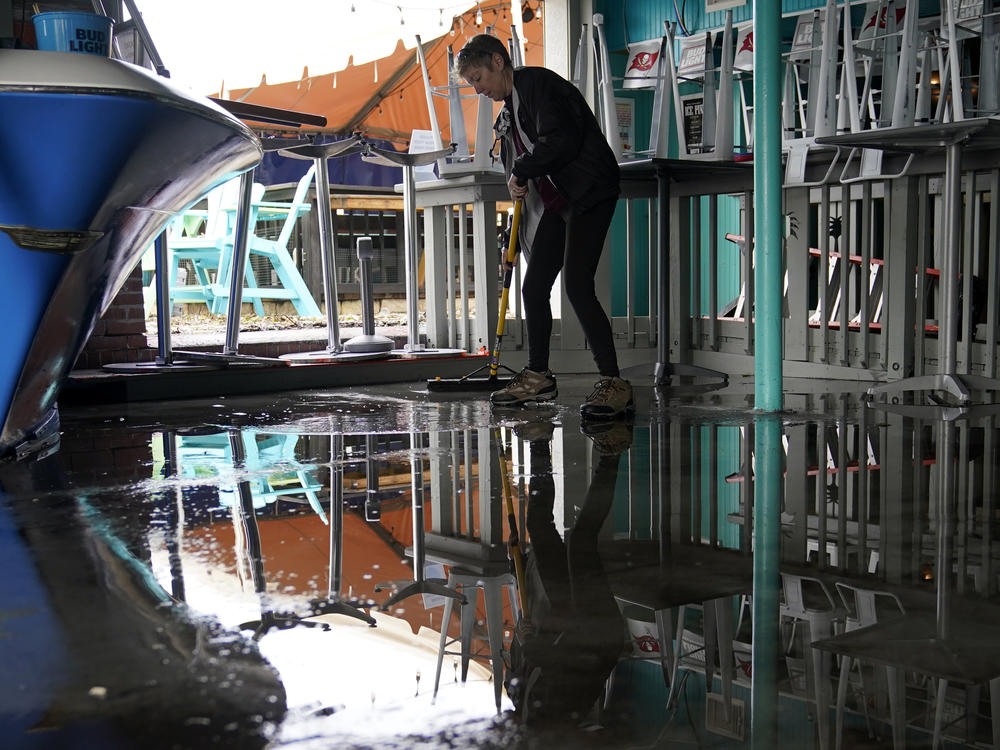Section Branding
Header Content
Tropical Storm Eta Cuts Across Florida, Dumping Heavy Rain
Primary Content
After briefly picking up hurricane strength, Eta weakened into a tropical storm and hit the Gulf Coast of Florida early Thursday.
Tropical Storm Eta made landfall with winds of 50 mph at 4 a.m. near Cedar Key, Fla., according to the National Hurricane Center. The storm is cutting across Florida and is forecast to reach the Atlantic by early Thursday afternoon local time.
It is expected to drop an additional 1 to 3 inches of rain across parts of the Florida Peninsula on Thursday, according to the hurricane center. Some areas in southern Florida could see up to 25 inches of rainfall total from this storm, which has been in and around the state for several days.
Tropical storm-force winds and heavy rain hit western Florida for much of Wednesday. Those winds are expected to continue along portions of Florida's northeast coast through early Thursday afternoon, according to the hurricane center.
Bands of rainfall will batter the peninsula, with isolated flash flooding expected. Minor river flooding in west Florida is forecast to last into the weekend.
The storm was expected to create swells near the Florida Gulf Coast that are "likely to cause life-threatening surf and rip current conditions," the center said.
One person died by electrocution after their home in Bradenton Beach flooded — which may be due to storm surge from Eta, The Bradenton Herald reported.
Sailboats were beached. Store owners tried to tame floods. Thousands are without power. Schools closed in anticipation of the storm, as the Tampa Bay Times reported.
Eta is expected to accelerate northeast over the next day or so.
Eta has now made landfall four times. When the storm hit Nicaragua more than a week ago, it killed dozens of people and caused extensive flooding. Then it hit Cuba. On Sunday, the storm made landfall in the Florida Keys, where it doused parts of the state with rainfall.
The storm is part of an unprecedented hurricane season. With 29 named storms, 2020 is the most active season on record.
Reese Oxner is an intern on NPR's News Desk.
Copyright 2020 NPR. To see more, visit https://www.npr.org.

